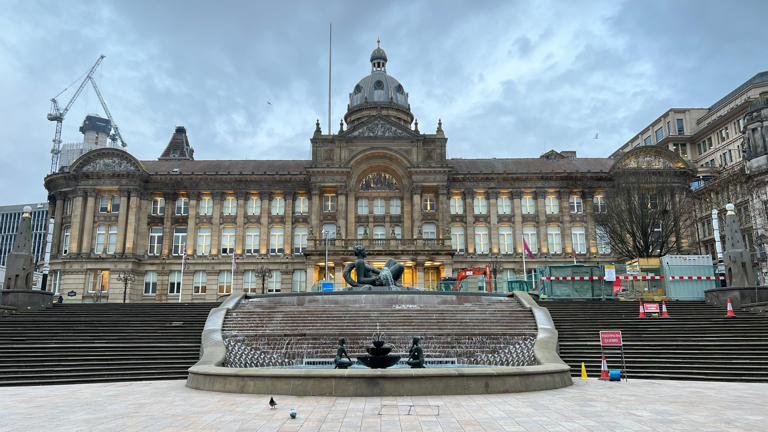Birmingham City Council is in the throes of a severe financial crisis, declaring itself effectively bankrupt and facing the daunting task of cutting up to £79 million from its budget for the upcoming financial year. This crisis comes on top of a previously identified shortfall of £50 million for the fiscal year 2025-26, adding to the council’s mounting financial woes.
Growing Budgetary Deficits and Savings Requirements
The financial troubles for Birmingham City Council first came to light in March when a budget was set to address existing shortfalls. However, a recent financial report has revealed a significant increase in the budget gap. The council now needs to find additional savings of between £75 million and £80 million. This new requirement comes on top of the already challenging task of addressing previous budgetary gaps. The draft budget detailing these drastic cuts is expected to be presented to the Cabinet in October, where it will be reviewed and scrutinized before final approval.
The council had previously issued a section 114 notice in September of the previous year, which is a formal declaration of financial insolvency. This step was accompanied by severe measures, including £300 million in cuts and a 21% increase in council tax over two years. Despite these drastic actions, the financial position of the council remains critically unstable, prompting significant concern from the Council’s corporate leadership team (CLT), cabinet members, and government commissioners.
Increased Financial Pressures and Inflationary Costs
The council’s financial challenges are compounded by increasing costs and inflationary pressures. One of the largest sources of pressure comes from the Birmingham Children’s Trust (BCT), which is forecasting an additional £34.7 million in expenditures to support a growing number of vulnerable children with complex needs. Additionally, general inflationary pressures have added £4.1 million to the council’s financial burdens.
Council leader John Cotton has acknowledged the seriousness of the financial situation, pointing out that the challenges are further exacerbated by failures in previous government policies, particularly in healthcare and housing. These systemic failures have had a ripple effect on local councils, including Birmingham’s. Cotton has stressed that the council is working around the clock to address these issues and mitigate the associated risks.
Criticism and Concerns from Council Members
The financial report has elicited strong criticism from various council members. Liberal Democrat councillor Roger Harmer has condemned the report as “shockingly grim,” warning that the additional costs could necessitate even more severe cuts to other essential council services. Harmer has criticized the council for its handling of cost forecasts and has raised concerns about the potential impact of these cuts on residents.
On the other hand, Labour leader John Cotton has defended the council’s transparency and its efforts to manage the financial crisis. Cotton has highlighted the increased demand for services, particularly those related to children and homelessness, as contributing factors to the council’s financial difficulties. He has emphasized that the council’s leadership is committed to addressing these challenges and minimizing potential risks.
Impact on Residents and Essential Services
The planned budget cuts are expected to have a profound impact on residents, particularly those relying on specific services. For instance, Sabiha Aziz, a mother of an 18-year-old son with severe learning disabilities, faces the prospect of losing crucial school transport support. The reduction in transport services, described by Aziz as a “lifeline” for families in similar situations, underscores the human cost of the council’s financial decisions. Aziz has criticized the new policy, which excludes her son’s age group from specialist transport services, and described the situation as a “horrendous experience.”
Government Response and Future Outlook
In response to the crisis, the Ministry for Housing, Local Government, and Communities has pledged to support local governments by providing more stability through multi-year funding settlements. The government plans to end competitive bidding for funds and reform the local audit system to help councils better manage their finances. These measures aim to provide a more stable financial environment for local authorities and address some of the systemic issues contributing to the financial difficulties faced by councils like Birmingham’s.
As Birmingham City Council navigates this challenging period, the effectiveness of these government measures and the council’s ability to implement the necessary cuts will be crucial in determining its financial stability and capacity to maintain essential services for its residents. The situation remains fluid, with ongoing developments likely to impact the council’s financial outlook and its ability to deliver critical services to the community.
